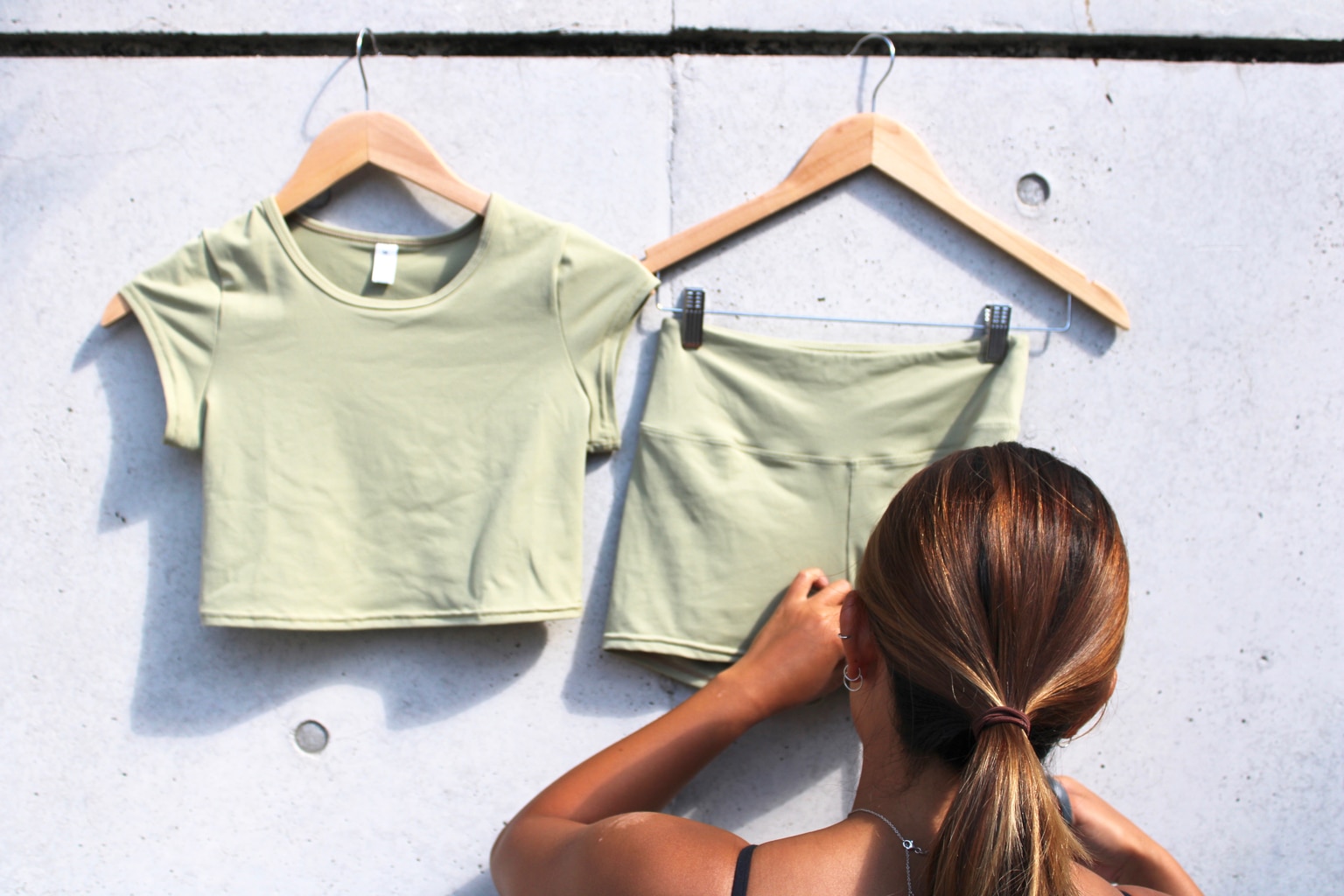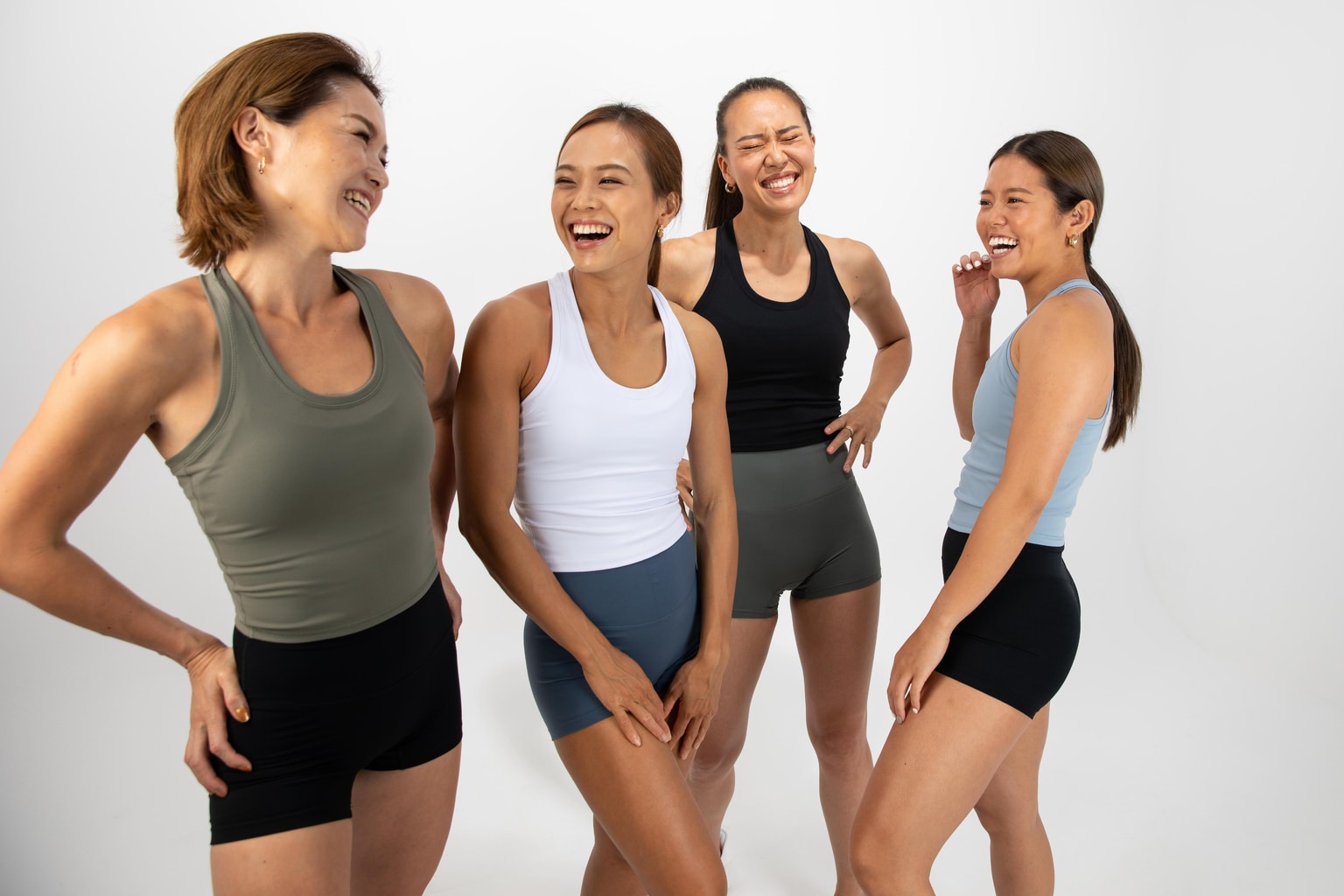From the outside looking in, the life of a professional athlete appears quite glamorous. The fame, fortune and adulation that sometimes comes with it, is certainly enticing. The reality for many, however, is very different. Just being able to continue in professional sport can be a constant struggle, particularly those disciplines that require a lot of financing. It’s why talented individuals often walk away.
That was a position pro snowboarder Runa Suzuki almost found herself in last year. With Japan’s snowboarding association on a hiatus due to the Covid-19 pandemic, things were looking bleak. Instead of turning her back on the sport, though, she decided to fund herself by launching a fitness wear brand named Soulfitwear (stylized as SOUL).

Promoting an Active Lifestyle
“Like many people, I was very frustrated last summer,” recalls Suzuki. “We couldn’t go out freely, the gyms were closed and I had no money. At the same time, I wanted to continue to compete internationally. That meant being able to generate income from wherever I was in the world. Fitness was always my passion so it made sense to do something related to that. I saw a growing number of people in Japan who were becoming unhealthy and mentally unwell because of the pandemic. I subsequently felt I could try to help them get more active.”
The fitness brand idea came to Suzuki in June of last year. Five months later, the business was up and running. Starting out with just ¥400,000, she was unable to hire any staff. From the design to the modeling of the clothes and then shipping them out to customers, she had to do everything herself. She even includes a personal written message with each of the items she sells.
“For me every connection is so important,” says Suzuki. “I want to carry on (writing messages) for as long as I can, but once we start shipping from a warehouse that might become impossible. I’ve let people know about that on Instagram, but even if I can’t do it anymore, I will continue interacting with my customers as much as possible, answering any questions or concerns they have on social media.”
Building a Community
While naturally keen to increase her customer base, Suzuki isn’t looking at her business simply as a cash cow. She doesn’t have ambitions to take on the biggest fashion brands and become known all around the world. Instead, the young entrepreneur wants to build things slowly to ensure all her customers are satisfied. That means creating products that are functional, fashionable and affordable.
“I would rather go deep and narrow than wide and shallow,” she says. “It’s about growing as a community while focusing on the core users. Ultimately, I just want every one of our customers to love the brand and have fun while shopping. I test all the clothes myself while doing intense CrossFit sessions. I remember personally struggling in the past with sportswear that did not endure high-intensity training so functionality is a priority. Thankfully, up until now the feedback has been very good.”
Suzuki believes too many fashion brands perpetuate the notion that being fit is all about having an amazing figure. Promotion campaigns often use models with a focus on being skinny or building muscles. She feels this concept of beauty is a major reason why so many people have an unhealthy body image. Instead of striving for some unrealistic ideal, she simply wants to spread the message that being active is beautiful.
Providing Support for Animals
Another message Suzuki is keen to spread through her business concerns animal welfare. In addition to donating part of Soul’s profits to animal shelters, she also uses her platform to encourage people to adopt animals rather than buying them at pet stores. There are around 20 million cats and dogs registered in this country and according to the Japan Pet Food Association an additional 600,000 pets joined households last year. Suzuki believes that many of these were bought on a whim without real thought about the future. This, she says, leads to more pets being abandoned and killed at shelters.
“You had all these lonely people who felt an animal could provide psychological support during the Covid-19 pandemic,” says Suzuki. “Pet shops tried to take advantage of the situation as much as they could and as a result, I was seeing all these flyers offering discounts for these living beings. They have diseases and their bones and ligaments are weak because they are forcefully bred. Most people aren’t aware of this because there is an ignorance about animal welfare in this country. They also don’t realize that they can adopt pets rather than buy them at these cruel stores. It’s heartbreaking.”
Aiming for the 2026 Winter Olympics
In the future, Suzuki would like to become more directly involved in animal shelters. Another ambition is to qualify for the 2026 Winter Olympics in Milan and Cortina d’Ampezzo. She competes in boardercross (also known as snowboard cross), a head-to-head competition in which boarders race against each other down an established and usually narrow course. Along the way, they must navigate various turns and obstacles including bumps, jumps, dips and berms.
“I went snowboarding with my family when I was young but I wasn’t good or anything,” remembers Suzuki. “I decided to take it seriously after watching the 2014 Sochi Olympics. I was amazed by these Japanese athletes coming up with these incredible moves on their boards. Taku (Hiraoka), who won bronze, is around my age and the silver-medalist Ayumu (Hirano) is even younger. What they were doing blew me away. I felt I had to try it even if I was already 17 and late to the party.”
Seven years on and Suzuki is now just outside the top 50 in women’s snowboard cross rankings. Despite turning pro four years ago, she still feels she’s at the beginning of her journey as most of her competitors have been boarding seriously since they were children. At the same time, she’s very proud of the progress she’s made. The Beijing Winter Olympics may have come around too early for her, but she’s determined to be ready for the 2026 Games in Italy while at the same time continuing to build and nurture her business.
Learn more about Soul at soulfitwear.jp
This article was published in Tokyo Weekender’s Nov-Dec 2021 magazine. Flip through the issue by clicking on the image below.
Updated On January 16, 2023












